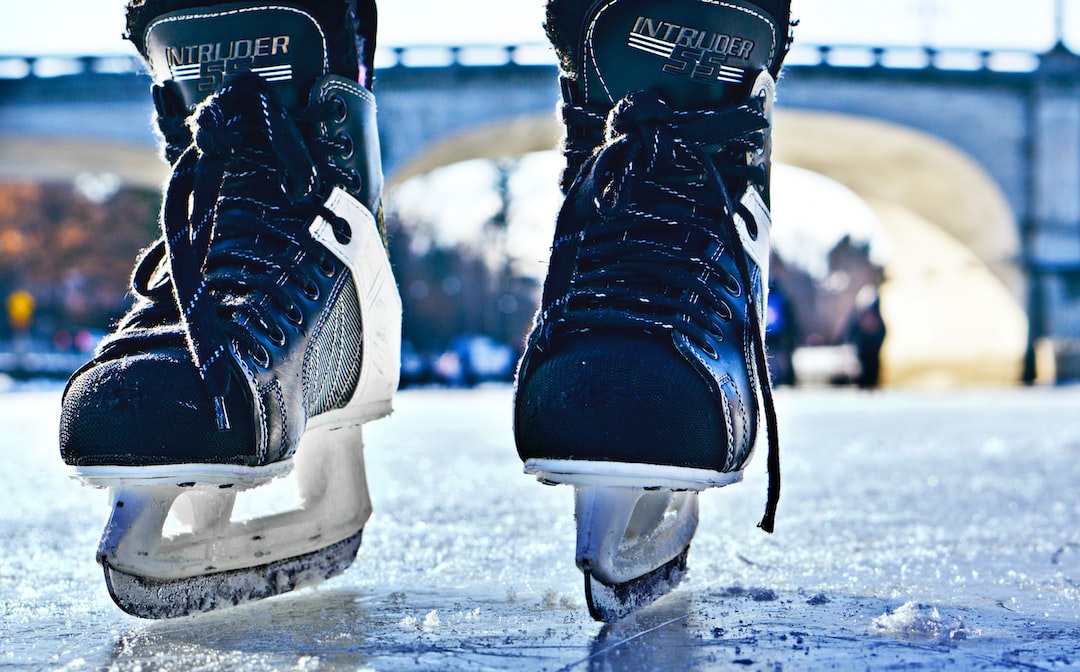Learn what concussions are, how they affect children, steps for prevention, and tips for supporting recovery.
CHILDHOOD CONCUSSIONS 101: THE ULTIMATE PARENT’S GUIDE
As parents, we know that children and teens are naturally curious and full of energy, which can sometimes lead to accidents. Whether it’s during contact sports and collision sports activities, playground adventures, biking, or even everyday mishaps, head injuries such as concussions can occur.
In this guide, I’ll walk you through the fundamental aspects of childhood concussions, from understanding what they are and how they occur to recognizing the signs and symptoms. I’ll also provide expert advice on prevention strategies to lower the risk of concussion and share valuable insights into the recovery process.
What Is A Concussion?
A concussion is a mild brain injury that occurs when the brain experiences a sudden jolt, blow, or impact. It typically results from a direct hit to the head, face, neck, or body that causes the brain to move rapidly within the skull. Think of the brain as a squishy fish in a very small round tank (skull) who is being shaken.
Indirect forces, such as whiplash-like movements or violent shaking of the head, can also cause concussions.
During a concussion, the impact disrupts the brain’s normal functioning, leading to various symptoms and temporary changes in brain function.
What Are Some Common Child And Teen Concussion Symptoms?
Doctors and healthcare providers can diagnose concussions based on the signs of concussion your child exhibits. Signs and symptoms of concussion might include:
- Fatigue
- Sensitivity to light and noise
- Inattention & delayed reaction time
- Difficulty with problem-solving
- Memory and learning challenges
- Dizziness & blurry vision
- Headache
- Vomiting
- Getting frustrated or upset very quickly
All children should be monitored after a concussion, but most concussions do not require emergency treatment unless symptoms increase in severity (e.g., seizure, slurring of words) over the first few hours, in which case a trip to the hospital is necessary as it may indicate a more severe brain injury.
Medical imaging techniques, including X-rays, CT scans, or MRI scans, may be necessary to diagnose injuries that go beyond a concussion.
How Long Do Symptoms Of A Concussion In Children Last?
Concussion symptoms typically last from a few days to a few months, and interestingly, the severity of the hit does not always correlate with the intensity or duration of symptoms.
Even seemingly minor head impacts, like a fall during a leisurely walk, can lead to a concussion. At the same time, more significant incidents, such as car accidents, may result in a milder injury.
Unfortunately, the factors that predict the severity and duration of symptoms are still not well understood.
So it’s essential to note that despite a child appearing and feeling back to normal, they may still experience subtle cognitive inefficiencies, indicating that the recovery process can still be ongoing.
How To Protect Your Child Against Concussions
Prevention is always better than cure. To minimize the risk of concussions in children, it’s crucial to take proactive measures and create a safe environment for their activities.
Here are some practical steps you can take.
Helmets: A Must-Have Gear
Always ensure your child wears a helmet when engaging in activities such as biking, skiing, roller skating, or any other activities faster than running speed. A proper helmet (right size and tighly tied) provide vital protection for the head and can significantly reduce the risk of concussions.
Buckle Up for Safety
Whether traveling in a car or participating in sports that involve vehicles, ensure your child always wears a seatbelt. Adjust the seatbelt according to their height to provide optimal protection and minimize the likelihood of head injuries in case of an accident. Always make sure that car seats are for the appropriate height and weight of the child.
Choosing Safer Activities
While adventure is essential for children’s growth, it’s advisable to steer them away from sports or activities with a high risk of concussions. Encourage them to engage in safer alternatives that still promote physical fitness and fun.
Supporting Recovery From Concussions In Children and Teens
My child has had a concussion. Now what?
First, know that even the most cautious parents sometimes experience events out of their control that lead to a child’s concussion.
The good news is that most children will recover from their concussions without lasting effects. If your child has experienced a concussion, there are several steps you can take to aid their recovery and promote brain healing.
Reducing Sources of Stress
Concussions can diminish a child’s ability to cope with daily stress and impact their mental health. Identifying and reducing stressors in their environment can create a calmer and more supportive atmosphere for their recovery.
Addressing Mental Health
Concussion symptoms, such as irritability and difficulties with problem-solving, can make children more susceptible to mental health challenges. Promptly addressing any emerging mental health difficulties and seeking professional help when needed is crucial in ensuring their well-being.
Nurturing Positive Social Relationships
Encourage your child to engage in positive social interactions. Building and maintaining healthy relationships with family and friends can provide emotional support and aid in their recovery journey.
Prioritizing Sleep Hygiene
Adequate rest is essential for the healing process. Promote good sleep hygiene by establishing a consistent sleep routine and creating a comfortable sleep environment for your child.
Emphasizing a Balanced Diet
Proper nutrition plays a vital role in recovery. Ensure your child consumes a balanced diet rich in nutrients that support brain health, such as fruits, vegetables, whole grains, and lean proteins.
Regular Exercise
Engaging in regular exercise can contribute to overall well-being and aid in the recovery process. Encourage your child to participate in age-appropriate physical activities, as recommended by their healthcare provider.
Avoiding Alcohol, Smoking, and Drugs
If you have a teen at home who has suffered from a concussion, then it’s more important than ever to enforce a strict no alcohol and drugs policy. Alcohol, tobacco, and drug use can have detrimental effects on the healing process. It’s crucial to create a substance-free environment for your child during their recovery from a concussion. Also be mindful of second-hand smoke.
Mental Health, Stress, And Concussions
Concussions can reduce your child’s ability to deal with daily stress and affect their mental health. Concussion symptoms such as irritability and trouble with problem-solving can make your child more vulnerable to stress.
Although the exact link is still poorly understood, children who have had concussions are also more likely to experience suicidal ideation.
Therefore, reducing stressors and focusing on pacing can be beneficial. Pacing refers to becoming attuned to cognitive (mental) fatigue and ensuring that the child is never overexerting themselves (which can result in meltdowns or panic-like symptoms) but rather working at a steady and somewhat slower pace with plenty of breaks and rest.
The Dangers of Second Impact Syndrome
If your child has had a concussion, then you should also know about the lasting effects of brain injuries, including Second Impact Syndrome. There are several potential risks associated with sustaining a second concussion within a two-year period of time after the initial concussion.
Such occurrences can lead to more severe symptoms and long-lasting effects. In extremely rare circumstances, a second concussion can cause the brain to lose its ability to regulate pressure which then triggers the brain to swell and get crushed against the skull resulting in death or severe impairment.
This alarming condition, known as “second impact syndrome,” underscores the significance of safeguarding your child’s brain health, especially after a concussion.
Ensure A Smooth & Complete Concussion Recovery: Intervention Neuropsychologique
If you find yourself in need of professional support and intervention for your child’s neuropsychology needs following a concussion, we encourage you to book an appointment. Dr. Leon’s expertise and specialized care can make a positive difference in your child’s recovery journey.
Take the next step towards ensuring the best possible outcomes for your child, and explore our neuropsychology intervention services today. Your child’s future health and well-being are worth it!
D'autres lectures
If you’re looking to delve deeper into the topic of concussions in children, consider exploring the following resources.
- CDC recommendations on aiding children in recovery from a concussion: Recovery from Concussion | HEADS UP | CDC Injury Center
- More recommendations with a particular focus on symptoms: How Can I Help My Child Recover After a Concussion?
- Interesting study on the effects of concussions: Long-term outcome after traumatic brain injury – PMC (nih.gov)
Foire aux questions
What are the potential long-term effects of childhood concussions?
While most children recover fully from concussions, there can be potential for short- to moderate-term effects, such as difficulties with attention, memory, learning, and emotional regulation. Long-term effects can happen in those with a history of prior concussions. Be sure to manage concussions properly and follow the recommended recovery process to minimize the risk of long-term effects.
How long does it typically take for a child to recover from a concussion?
The recovery time for concussions varies for each child and depends on factors such as the severity of the injury and individual differences. Most children recover within a few weeks to a few months. However, some cases may take longer. The recovery process should be gradual, with appropriate rest and monitored progression.
Are there any specific activities or sports that pose a higher risk of concussions for children?
Certain activities and sports carry a higher risk of concussions for children, such as contact sports like football, hockey, and soccer. Activities involving high-speed or impact, such as biking, skateboarding, and horseback riding, also pose risks. You cannot prevent all concussions, but ensure proper safety measures, such as using protective gear like helmets. Return-to-play guidelines should also be followed to minimize the risk of a repeat concussion.
In Summary
Parents should closely monitor their child following a concussion, seeking immediate medical attention if any severe symptoms like loss of consciousness, seizures, or worsening headaches occur. After receiving medical clearance, it’s important to allow the child to rest both physically and cognitively, gradually reintroducing activities as symptoms improve and following the healthcare provider’s guidelines for returning to school and sports to prevent re-injury. It is also important that parents offer emotional support, patience, and understanding during the recovery process, ensuring the child feels supported while allowing ample time for full recuperation before resuming regular activities.
Dre Stéphanie L. Léon
Dr. Leon is a clinical psychologist and neuropsychologist practicing in the province of Ontario and Quebec. She works with children, teens, and their parents to address emotional, behavioural, and cognitive difficulties. Dr. Leon offers online neuropsychology services through the Clinique de psychologie Leon.
Cela vous a été utile? Partagez avec un ami!


